.
.
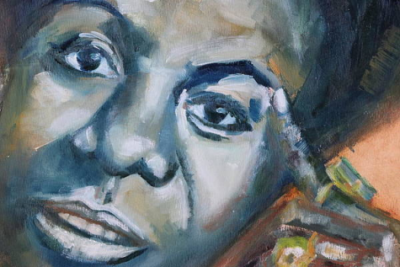
.
“I Wish I Knew How” is a painting of Nina Simone by Christel Roelandt, a Belgian painter from Ghent in Flanders who now lives in Beirut. Her work focuses on the human form; faces and nudes, and she finds inspiration by all things beautiful and often by books, music and films.
With her gracious consent, Ms. Roelandt’s art is featured throughout this collection. (All images © Christel Roelandt)
.
.
_____
.
.
“What we play is life.”
-Louis Armstrong
.
“Maybe that’s what life is… a wink of the eye and winking stars.”
-Jack Kerouac
.
.
Jazz and poetry have always had a symbiotic relationship. Their creative languages share the common soil of imagination and improvisation, from which their audiences discover inspiration and spirit, and perhaps even a renewed faith in life itself.
This collection features 50 gifted poets from places as disparate as Ohio and Nepal, Estonia and Boston, Guyana and Pittsburgh, each publicly sharing their inner world reverence for the culture of jazz music.
As always, thanks to the poets, and I hope you enjoy.
Joe
.
.
.
At the conclusion of the poems, biographies of the poets contributing to this collection are listed in the order in which their poems appeared
.
.
_____
.
.
.
Goodbye Pork Pie Hat
Adios, Lester, masalama, adieu, sayonara,
whatever the language is, Mingus names you
through your hat and says goodbye, mourns
your passing, makes profound loss profoundly
lovely and heart-wrenching simultaneously;
and we all weep across the years for you,
and now, at this late date, for him as well,
and a whole generation of amazing musicians.
Swing, sing, bring all there is in the heart
out into a bereft world and celebrate all
you, Mingus, and all your peers accomplished.
There are no words to express all you did,
only music to make the air sing, bleed, heal.
.
by Michael L. Newell
.
___
.
Long Past Midnight
there’s no
washing off the jazz,
sticking to skin
from corners
and under cars
through windows
or down the up
stairway
under half or
full moons
it finds its
sharp path
to my soul
feeding,
lifting, carrying
my thoughts
long past
the midnight
of my day
.
by Roger Singer
.
___
.
A Varied Timbre
Through the early Spring afternoons
on a bench at the Fens,
he would listen to student musicians
practice in the rooms at the jazz college,
licks from the open windows,
mingling with the bustle of traffic
on city streets. He could never identify
the player, just the unpolished sounds
with hidden promise.
All together, it was a cacophony that mingled
with the magnificence of the day,
though nothing could ever subdue the crowds
or street noise, it just blended,
a constant source of delight,
the combination of passion and wrong notes,
squeaks with flashes of brilliance,
mostly unobserved by the populace.
But on this day, the sidewalk trees thirst
under the late summer sun
and the once sound sodden rooms
are darkened by viral fear.
The timbres which filled the street
have succumbed to an audible emptiness
and the monotony of inconclusive speculation.
This Fall, an instrumental entanglement
will no longer rouse the streets,
for when the autumn doors open,
the air will be filled with emptiness,
only computers and electronics
will dictate remotely
to the latest breed of musicians
who will practice
within a new design, amid their homes,
their ensembles relegated to tiny blocks
upon the screen, where the brilliance of sound
reverberates in a single room.
.
by Michael Keshigian
.
___
.
Playlist Birds
these last birds of the day fly into the darkness
gathering around their bushes and trees
little teams of wanderers settling in
while Thelonious Monk’s Brilliant Corners
without fanfare
ends and blends
into Chet Baker’s angelic trumpet
accompanied by Paul Bley’s piano lines
announcing a softening of the world
that’s how quickly it can happen
.
by Frank Wilkes
.
___
.
Early Autumn
October at midpoint
Brooklyn in seasonal transition
summer trees wear highlights
of golden yellow reddish orange or russet brown
cool air tingles my fingers that snap photos
of ghouls & witches amid pumpkin patches
from a passing car
I hear Ella Fitzgerald sing Early Autumn
walk a few more blocks before rain’s return
& think of things best kept in the attic
like why my thoughts wear Code Orange
& why you can’t touch me hear me or even see me
.
………………….originally published in Poets Wear Prada‘s Rainbow Project/October, 2020
.
by Patricia Carragon
.
.
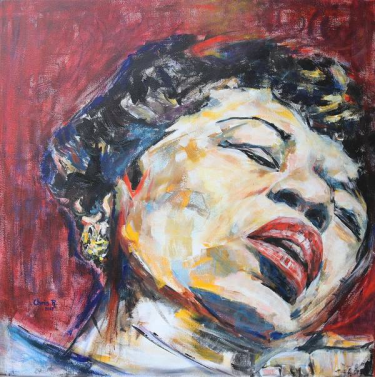
“In Between the Devil and the Deep Blue Sea,” by Christel Roelandt
.
.
Listening To Freddie Hubbard Under Quarantine
Stars fall like dreams in the fall night
How your face moves me, like a dream of angels
As I hold you, as the trumpet plays, you are my prize
Never to be taken for granted; you are my night flower
Never lovelier, as the song of the trumpet, gives you its shape
Once you were a ghost, living inside a horn, silent, a prayer
Now I hear you, burning bright, my ivory flame
Because fall is a season of magic, you are reborn;
Righteously, you give your power to me, through touch
As the trumpeter, brings fall to life, in a night song
Dance around me, dear lady, anoint me with dreams of wonder
Bless me with your ebullience, the music your laughter gives
Ever golden, naked, you are golden as a trumpet, with a song of desire
Race to me, and i will hold you, as the leaves dress the earth with fall
Reds, browns and greys, are the color of fall, their motto
You are a season of songs inside a trumpet, Freddie plays dear
.
by Erren Kelly
.
___
.
Stitt
Norman’s Blues —
I know that you know
if I had you —
alone, together —
my down home blues
would turn to stars,
falling on Alabama.
My body and soul
drifts between the devil
and the deep blue sea —
Blues….
Down home blues —
Norman’s Blues.
Doin’ the rag
on 12th Street —
NY Jazz,
lean and plunging.
.
by Russell Dupont
.
___
.
The Migrant
………………………(for Brew Moore)
A breath of melancholy enters the microphone,
tumbling out into the nightclub air,
twisting through the smoke,
never quite finding the peace it seems to seek.
It speaks of difficult times,
of pride and regret,
of survival and unrewarded lack,
of chasing a dream of acceptance and fame,
and a prosperity that may never appear.
It’s a tale woven with tact and precision,
and all the aggression there was left to give.
One day the clouds will part,
and things will be easier,
but that day is not today,
and there’s still two more sets to go,
and a long night’s drive to the next gig,
for this indentured servant,
this luckless soul,
coasting on memories of better times,
trapped in the Jazz life.
.
by Freddington
.
___
.
Poem For Gary Smulyan
I—
a doubting Thomas
saw you better heard you
in the reed section of the Orchestra
on one of those Monday nights at the Village Vanguard
all elbows with your E-flat baritone
like a heavy broadsword
oh knight among squires!
while outside the summer lightning was all trumpets
and triplets falling
as you were beautiful thunder indoors
so
Hail Gary—
Prince of the Five Boroughs
bless me
as I return now to my daily shame
of work
and bosses
and spreadsheets
and high rivers
I can only think of your solo on
The Bad and the Beautiful
first
the gut wrenching lyric
a sad book had it been a novel
then
the sound of your deep breathing
as unmistakable hope
an anchor
not a butterfly
until I
behind my shield
believe in heaven again
.
by John Stupp
.
___
.
Twisted
The vinyl goes round and round,
transports me back and it’s
Summertime and I’m boppin’
On the Avenue with
Lambert, Hendricks & Ross,
cool cats
with lots of scat
expertise.
My analyst told me,
Ross confides, I was right out
of my head and again
I’m hooked.
The rhythms,
the rhythms,
the magical
synco-
pation.
Lyrics idiosyn-
cratic, perfor-
mance charis-
matic, impact dra-
matic.
Ma Petit Bijou,
Gimme that Wine,
cause Everybody’s
Boppin’.
With that trio, three
heads were way
better than one.
.
by Phyllis Wax
.
___
.
Ben Webster’s Horn
…………………………..(1938-1973)
sang melodies unforgettably
frisked frogs
taught tonight
got started
(while claiming not to)
stayed for love
bridged Chelsea
touched lips
pouted
knew no greater love
aired out Londonderry
lolly-gagged with Hodges
waited for champagne
blew fuses
described a single petal of a rose
& still continues watching over someones
……………………………………such as We
for generations yet to be realized
.
by Terrance Underwood
.
.
.

“Recycled Bits and Pieces,” by Christel Roelandt
.
.
Making Something Out Of Nothing
Reflection jazz.
You start with song.
As it goes playing on,
You saying something in the fuzz –
The chords, the tune become pure jazz.
And as it goes along
What seeded as a minus
Soon becomes a plus.
A pure example and a sample
Of the art of making something out of nothing.
This applies to everything.
.
by Arlene Corwin
.
___
.
His Vision
he pushed hard
the song,
forcing up
to the surface
words
buried within,
a heat
of burden
released
into song,
spreading
his vision
of sights within,
pieces of his life
drifting above
outstretched hands,
clawing at, finding a way
of breaking into
the more of
who he is
.
by Roger Singer
.
___
.
Musician
Keep in time with me
follow my lead
listen to the inner beat between my knees
find the chord
pluck the string
keep the rhythm hard and steady
tell me, ‘are you ready?’
no clothes
no shame
Slide guitar.
Strike intimate notes just right
and I’ll stroke your sitar
this velvet throat creates the melody
Keeping things smooth.
My musician, and creator
play a duet with me
keyboards, strings, or drums
Just use anything.
.
by Dana Hunter
.
___
.
An Act Of An Apostle
like so many now
this stratus sky day opens
………………………..achromatic
enclosed & remaining so
but for shades of grim pastel
………………………..eyesight dim
…………at or near a low horizon
& it’s only when the
zephyr sweet
………………………..horn-rimmed tone
from Desmond’s solo alto
wafts into earshot
that such indistinct climate
such grey gives way
to a tender white & crystal blue
………………………..cumulus onrush
making this small Orb expansive again
for other scales to abound
.
by Terrance Underwood
.
___
.
Midnight Composer
He hunches at the altar of ivory keys,
sampling each one for tone and pitch,
hoping to discover the pattern of notes
to form the chorus for the verse,
that roots him to the wooden bench,
hypnotized by the melodic rhythm
of quarter, whole, triple, and halves,
sharps and flats looped in his head
that he must transpose to the page before him.
And not until every staff of every measure
is anchored with notes and rests,
demarcated with clefs, key signatures, and bars
can he hope to break free of this composer’s purgatory.
.
by Antoinette Winstead
.
.
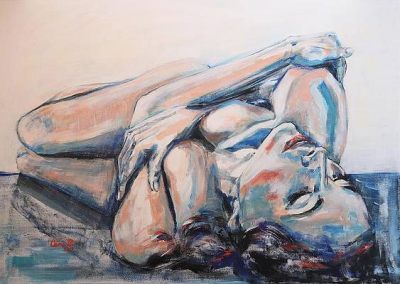
“Gonna Make Me Lonesome When You Go,” by Christel Roelandt
.
.
The Lips Of Jazz
When I kissed her I felt the song on her lips and there was nothing
in the world that we ever wanted more than to feel freedom in our
hearts, than to see light in our hearts, than to smell love in our breath,
when the sound will always dress the silence and those thoughts,
our own thoughts will dress emptiness exactly the same way. “Hold me,
touch me with your thought,” that lips were telling me. “I would stretch out
naked from here to you, blessing is your expectation, when you know what
a joy to shine in you, hold me, touch me with your breath too, with your
passion, your thirst, your hunger, with all your strength try to get through,
while the heart beats and even after, while the song lives and ever after.”
.
by David Dephy
.
___
.
Poets Dreaming
it was one of those moments when it all comes together…
Venus pulsing radiance above the pale blue horizon
as Van Morrison succumbs to his chant
about the haunts of Ancient Peace
just as Pee Wee Ellis’s gentle…staccato…notes…climb
in harmony with each reveal of star…star by star…note by note
then it all comes together as he exhales through
his instrument
……………as softly as infant breath
Morrison’s voice dripping honey…
just like it came together moments ago back at Yale
as poets and theologians
………………………….met together and kissed
dreaming of renewal
baptized in re-born holy language
a Pentecost in reverse
to anoint this fragmented age
with solar flares of fiery tongues
.
by Jim Mello
.
___
.
Lydia Outside The Vanguard: 2010
……………………………………….For L.M.L.
Those moments.
Does everyone have them?
Where years on you’re vaulted right back
..to the early days, to the hopelessly infatuated
….“walking into walls” phase?
Where your heart suddenly swells like a boiling,
shore-bound breaker in a Turner seascape?
Does everybody have them?
………………………..*
We take care of some errands separately;
plan to meet at the Vanguard for the first set.*
A little late, I hustle along Seventh,
clutching our tickets in one hand.
And there she is. Hasn’t seen me yet.
But I see her.
Inside, Tom Harrell transmutes that momentary feeling
….Into the fluttering, climbing arpeggio
which, after the piano intro,
opens “Roman Nights”—
hurried footsteps up a familiar staircase
to the apex of love where a blissful calm reigns.
For now.
(Until the next breaker
….rolls into shore.)
.
*The lineup that evening in May 2010 had Tom Harrell on trumpet, David Berkman on piano, Wayne Escoffery on sax, Ugonna Okegwo on bass and Jonathan Blake on drums. The album Roman Nights was released a few days earlier that month. A brilliant video of Harrell playing the title track in a duet recorded in Mallorca with Danny Grissett on piano is available on YouTube . The piano intro in that recording is greatly extended, as is Harrell’s exquisite opening trumpet arpeggio.
.
by P. W. Bridgman
.
___
.
The Happy Murmurs Of Busy Bumble Bees Buzzing
She is the silent stream
of psychedelic consciousness
flowing through the blue ocean
of my veins. She is dope
the heroine of my story
I could never resist.
And though, I have tried
to turn away, I am compelled
to watch as her seductive light
dances to the rhythmic shades
of soulful silhouettes
lifting shadows
from their darkness.
You could say she’s sexy
for she is the concubine
who gives birth to my melodic
musings, so heady and amorous
is her scent, much like the
Naked Lady Amaryllis,
a sweet aphrodisiac,
she keeps me guessing,
keeps me wondering,
keeps me wanting more.
For she is so cool, a bit of a mystery
arousing my deepest curiosity, but she
only exposes the tip of the iceberg, keeping
her head just above water.
The soul of a Buddhist
she prefers to wade
in the middle-way
refusing to sink or swim.
Ever the optimist
her cup never runs over
always remaining half full.
She is the hypnotic word-play
of hip hop.
I can remember back when
our love affair began
with a gold chain, and a medallion
swinging back and forth like a pendulum
she has cast me beneath her spell.
She moves with a rhythm and blues
that flows like a cool glass of water
that goes down smooth like
Jazz.
She’s groovy like: Ella, sultry like Billie
like Miles, Monk, and Coltrane, she makes me
so damn Dizzy!
The way her fondling fingertips
tickles the ivories of my spinal cord
places me in a spiraling spin that sends
the oxygen rushing through my brain so fast,
I’m flying high on electric blue vibes.
My thoughts are steadily rising like the sun,
shining its light upon the faces of weeping willows
that suddenly smile to the jubilant sound of ringing echoes
resonating from the caves of melanin toned honey combs
filled with the happy murmurs of busy bumble bees buzzing!
.
by Prince McNally
.
.
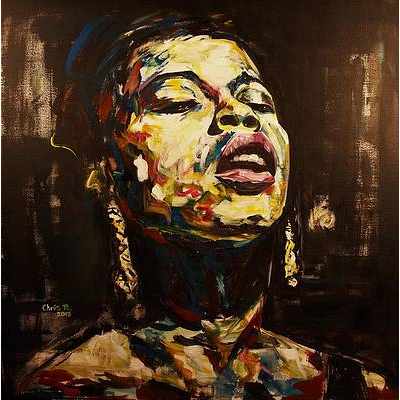
“You Go To My Head,” by Christel Roelandt
.
.
I Put A Spell On You
………………………(sung by Nina Simone)
red & gold leaves crushed under my boots
….on my iPhone Nina Simone sang I Put a Spell on You
….….Halloween was in the air
….….….& during the full moon .witchy thoughts would take flight
the law of attraction needed assistance
….red candles anointed with rose oil . cinnamon . rosemary . & poppy seeds
….….worked up a heated spell invoked what lived under lock & key
I made a vow to love & honor asked the goddess to send you my way
….you did come & I was first in line .but someone else walked ahead of me
……..love wrapped me in a blindfold .kept me in denial for a week
…………I confronted you and her
…………….but the goddess favored her over me
………………..my feelings became waxen tears & ash
red & gold leaves crushed under my boots
….on my iPhone Nina Simone sang I Put a Spell on You
……..November’s fierce wind persisted
…………emotions became icicle tears under lock & key
…………….invoked the approaching December storm
………………..to cover a graveyard of dried leaves
.
by Patricia Carragon
.
___
.
Bird Lives!
The needle drops on Charlie Parker
…………………………………………………playing “Relaxin’ at Camarillo”
the boy lies on the floor
………………………………..of his room and listens to the gorgeous ease
the affirmation
buoyant…..love…..song
………………………………..he reads the liner notes
Charlie Parker six months
……………………………………at Camarillo State Hospital
nervous exhaustion
…………………………they called it
He listens every night
……………………………..and knows his life is changed forever
and wonders why–
………………………..How ………this music so alive
………………………………………………………………….tRiumphant
was made by so many
……………………………..wasted by addiction
Who spent years
…………………..mastering their art unknown in America–
finally BIRD
….the luminary of Paris …..and would have played with
Stravinsky
………………………………He drifts off
as Miles’ ..muted trumpet
……………………………turns notes into words
a soft-spoken grace ……………………………………not learned in school
the strength
……………of the solitary walker and thinker the human grace of
color
lips………. slightly cracked
………………………………………A hopeful desert
……………………………..this song the color of blood
…………………………………..and earth that moves
………………………………..in …the… sudden
intimation of
a smile
……………….like the surprise of the traveler
………………………………………………..seeing the glint of light
from a river in the dry land–
…………………………………..He awakes from dreams beyond his
years
…………….The Bird of Time
hands curving the sax
………………………………….has but a little way
his fingers seek the language
………………………………to flutter
the needle drops
………………..–and the Bird is on the Wing
.
……………….(originally published on Jerry Jazz Musician, August 14, 2020)
.
by Geoffrey Polk
.
___
.
Not Going Anywhere
I’ll gladly leave
if only you teach me how to play jazz.
How to spray-tan this
bluesy vibe with
melodramatic magnificence
and other methods I don’t understand.
Teach me the staccato kick
of the jagged edge the ticker
and patter of which
imports a flutter into this torpor
too terrific to strip.
How can I loom like you do—
blooming and bulging over the roaming lullaby
sweeping her into your arms and whispering
youthful affirmations of philanthropy.
Show me the long note, the shine
rising above the herd and after one sudden breath—
sinking into the valley.
Then to emerge and soar again
like the albatross.
I want to be the albatross,
like you,
if only you’d teach me how to play jazz.
.
by Josie Rozell
.
___
.
Love For Sale
I’d just had my first 10 minute play done
in Hollywood at a marathon for actors
and now I was speeding west towards
the Pacific Ocean on the road where
James Dean had his final scene, his Porsche
hitting a Ford, and he was only twenty-four,
the brown hills, like little isles, floating
below coastal clouds, and the spring breeze
was blowing in the open windows smelling
of fresh sea weed. On the stereo, “Love for Sale”
Dexter’s sax humming like a freight train.
James Dean never knew how unique he was.
And I recall the tormented teen Dean played
in Rebel Without a Cause and I think of the
sad lost love forsaken one he played in
East of Eden and the moaning sax wails—
……………….Love . . for . . Sale.
.
by D.H. Jenkins
.
___
.
Midnight Dance
He catches you dancing by yourself
to the music he put on that you thought you were too tired to hear,
yet you dance.
He smiles and does his gawky teenager dance
and all the disappointment, expectation, and irritation melt away and you remember,
you know why you’re with him.
Why his music, all music, is important.
you connect without words and the night is good
And then he plays another and the night gets better
You take his offered hand and dance, but not choreographed steps, not stuff you’ve learned,
not one, two, three, four, though they’re in there, but this dance is pure music, pure
connection.
the existence of your two children melt away
the mortgage disappears
you dance in a jersey cotton nightdress that flits about your legs
he in t-shirt and boxer shorts
the hairs of his thigh rub against your leg in a way you’re only accustomed to in bed
it’s just you and him
no one else exists in the world
the possibilities open
the bowl is empty, ready to be filled
your entire life ahead of you
the sun is not setting, it’s a golden dance on the horizon
.
by Tam Francis
.
___
.
…………………….Turning Our Backs On Love
….Meeting him once, doleful was the impression I enjoyed
far more than he, my uncontrollable account was unpersuasive
…………..(suavity may sometimes be perilously evasive).
……….The stories of him, the magic of the man I’d envied,
whose toes my girl in daughter’s ecstasy once danced on; —
…enamored of jazz, a soulful man, who took in Fatherland
…………..ascendancy, an enchanted solo that will charm
…………………………..long after he and I are gone.
……………….O what is that shadow, the somber tone
………………….attenuates the lengthening of life —
……………………………….a sorrow in the bone
…………..disassociating drumbeat from the saxophone —
………………………..a darkness even like the light
…………that falls between tomorrow and a distant home?
Figures disengage themselves gradually from this night,
……..which is both the soul of nightmare and the stark
……………tread of creatures we imagined in the dark.
.
by John Jack Jackie (Edward) Cooper
.
.
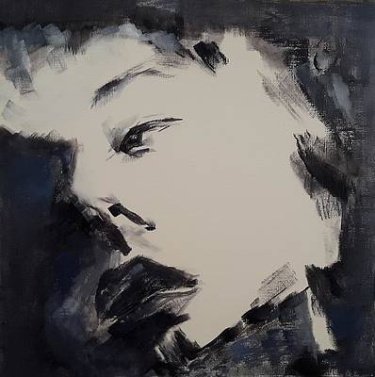
“Misty Blue,” by Christel Roelandt
.
.
Harry Seeks A Witness
A chair warmly entangled
in afternoon sunlight
embraces me
as I slowly slide
into its arms,
rub my fingers lightly
over mahogany, sip
cocoa, and remember
your fingers tracing whorls
through long afternoons
spent listening to Ben Webster
and Oscar Peterson
(on sax and piano)
investigate the terrain of love
and its various disasters.
It was impossible, we thought,
for us to ever truly know
these things; I remind myself
of this as I toast the 8X10 glossy
you left behind and search for fingerprints
on chair, on cup,
on flesh, on shafts
of light warming skin;
even the cocoa, scalding hot,
is scrutinized for evidence.
.
by Michael L. Newell
.
___
.
Ballad Of That Thing Called Time
The lullaby of a broom
swishes leaves down sidewalks
like a patient mother scurrying
sleepy children to bed
they flutter in their own way
yet fly in one direction
brings to mind the gentle nudge of time
In my rocking chair,
I, too, drift in my own way,
to and fro to the sound of a second hand
from a clock on the wall
that no longer keeps correct time
listen
the faint brushstroke
of some forgotten jazz drummer
sets a different type of time,
sweeping and hooking full circles ’round the head of a drum
s-s-h-h-h his music seems to say
the children are now sleeping
the chair no longer sways,
the clock has stopped its ticking
time for broom and brush to be put away.
.
by Dan Franch
.
___
.
Jack Teagarden Buries Louis Armstrong’s Oriental Strut, Mesa, NM, ca. 1926
…………………………………………….for Nancy Krygowski
Nancy, I’m writing you from here in the year of everything
falling apart, where Jack Teagarden sings the oldest blues
he ever heard on the radio, where half of this August sky
is smudged with rain and the rest is simply too tired to try,
and where the voices of old friends sound distant and frail
like a thing wounded and struggling in the ditch, gone to ground
in the fresh mud whispering names of the no longer living,
and then all too soon they are gone as well leaving only
the mourning dove perched over the street lamenting
in my ear, and then the breeze is picking up, warm on my
neck like a damp washcloth, and everywhere around
is just more loneliness attired in familiar shapes, the shadows
the blowing leaves throw around mirror these intricate webs
of blood vessels crowding the loose skin sunk beneath
the eyes of some other old man awash in light and loss,
and lifting the tarnished curve of his horn to papery lips, Jack
Teagarden somewhere in 1947, his heart piled up with booze
and debt, but still a suppleness to his mouth, a flash
of something dangerous in the hard set of his jaw, something
finally empty of tears, and here he is again a young man
kicking the desert dust of Mesa, NM, the sky here unchiseled
by itinerant clouds but still cruel in its cherished adolescence
and far, with his knees in the sun-packed dirt, his hands
become trowels, the bones in his fingers breaking the ground,
gouging something greater than a grave into the land, here
to bury this fragile shellac, this bright utterance
from the uncageable soul, he believes will now outlast
all of America, this fossil-to-be locked under the hard
earth, voices in glory, never silent, forever there
should we need the reminder, Nancy, that such things matter,
the very best of us will last long after the worst
of everything is only a shameful memory.
.
by Kristofer Collins
.
___
.
Virginia
………………….(no. 81 of Women’s names sensual series)
She was so good at playing dead
when she was young—lying
for hours on the green grass
under the apple tree.
She wished she was more special then she was
& that her pain would eventually stop
like her older sister,
who stole meds from Daddy’s nightstand
while listening to her Lady Day albums.
The branches above
cut out pictures of the light;
the grass was damp & sharp
like tiny steel blades
But the earth
smelled like heaven
as she waited
for the apples to drop down.
.
by Carrie Magness Radna
.
___
.
For Connie
Bits and pieces of time drift through my mind
I try to catch them but___
I can’t even remember when___
Were they in some eternal spring?
Or maybe in a lazy, dazy summer?
when we skipped stones across the Lake?
It was about the same time that Bird grew wings that
flew him to a mountain-top
up so high
that we never heard from him again
except on your battery-run record player
that, in spite of a worn-out needle
scratched along with Bird’s
notes that leapt and jumped
We drug it to that lumpy, rock-strung beach
and pushed aside the fish bones and seashells
to watch Judy perform her famous swan dive
out on the broken pier swimming in seaweed
Then there was Ray’s Radio Inn
Where I think the beginning of the end happened
You told me that your mother bought a house on Wayne Street
And you’d be moving before school started
Stunned, I sat in the booth while a trumpeter
The one with the ravishing eyes
blew on a dime-size stage
You remember, he often played my favorite, Stella by Starlight
And sat with us and drank a beer between sets
“I get mighty dry up there,” he told me.
And two beers later he said he was aiming for
the width and depths Of Miles’ riffs
“But I’m too involved with my main squeeze now to concentrate”
And I think, no, I knew then that
was the end of the beginning
.
by Susandale
.
.
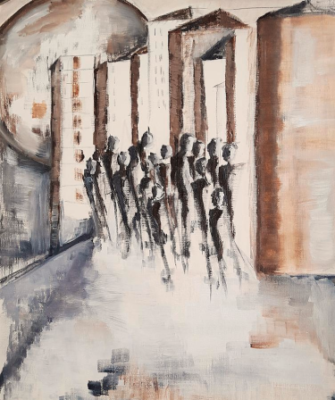
“Living For the City,” by Christel Roelandt
.
.
She Did Not Go To Chicago
Instead, Helen went to Slug’s
to see him play, despite a feeling
something bad might happen.
Lee zones out before a tropical fish tank
on his new vibe lady’s couch—
never goes home on New Year’s Eve.
Tells her something bad’s gonna happen.
Helen is nobody’s main girl;
refuses to live that fantasy for a fella
she cleaned up from the gutter, once
again the cocksure Messenger.
They say never the twain shall meet.
But they do. Lee chooses the new vibe,
cold-shoulders the old bitch
into the snow without a coat.
Hell hath no fury as hot
as a cuckquean outside a jazz club
with a handgun in her purse,
thinking, This must be a dream.
A scene follows that friends later file
under—should have seen it coming—
leaving legendary lips and lungs
to exsanguinate on slushy saloon floor.
.
by Jordan Trethewey
.
___
.
Small’s
…………………………..(a jazz club in New York City)
The usual and the obscure.
We waited an hour, or maybe
more, after striking out
at the rhythm and blues club.
White underground staircase
served as a talisman
for a new life, jazz, as if anyone
could understand it, as if the
world
were involved in a tight card
game,
and, even though I told it right,
at Small’s in The City,
at the bottom of a staircase,
there was
mad music mad music mad music
Bamboo and Brass, played
like they belonged to this cellar.
Clifford Brown, Miles Davis,
Sweets Edison, Ornette Coleman,
Don Cherry, Sonny Rollins, Hubert Laws
echoed against the wall as if we
were all there was in the world:
we were ecstatic. Love, phallus, wind.
Night.
In line ahead of us, people from Quebec
read Irish stories aloud. Jay Collins,
Hubert Laws, Phil Woods, Rampal,
“St. Thomas,” “Four.”
mad music mad music mad music.
It was
Life as it might have been
like
when the sax player knelt
down and his soft leather
bow and arrow
slung over his shoulder, slipped
out. I wanted sounds
and notes, wooden flutes
outside
playing
mad music mad music mad music
People from Quebec. The pipe player.
The wind taming the sea.
Like a gypsy,
the muse of harmony, Apollo
son of sky, son of night
play me a tune, hero-man.
Bows and arrows like rays of sky.
“In town” he said to me,
to pass the time.
Counting out
answers, I waited
near for him to sign his name,
an “e” for an “I”
was what he wrote
above us, the underground
staircase,
worn, like an amulet about our necks.
.
by Millicent Borges Accardi
.
___
.
Himalayan Jazz Bar
The Sun has risen
but it is not yet warm enough
to come out in the open and dance.
Nonetheless wherever they are,
they feel pretty euphoric and warm.
Now at least they can listen
to their special songs and smile.
Let them hold
their hands for a while
in the corner of their favorite jazz bar
perched up on a hillock, a rambling
garden all around, extended with
glorious trees, garlanded by
vibrant climbers atop
and fancy swaying shrubs below.
Sweet zephyr encompasses all.
The majestic Himalayas
smiles in the distance
through a window
between the sturdy trees.
Let the fragrance of the
soothing jazz music
mellow furthermore
with their sensual midday sighs.
Let them gaze into their eyes
and dream of harmony,
of peace and liberty,
which we, in our madness
have separated,
and have devised a realism
that is absurd, and pretend to
find solace in a bolt
of the lightning .
A young guitarist
finds himself looking out
at the snow tipped mountains
across the horizon
and soaking in
all the atmosphere,
then delves further
into the elusive
melodies of the Jazz
conveying a wholly aesthetic
mood of infectious joyousness .
The sunlight filters
through his guitar strings
and the melody
of the monsoon flood water
that run off steep hillsides
through wild shrubbery,
animated with bird songs
seduces all.
O what a sight to behold.
.
by Bhuwan Thapaliya
.
___
.
Firefly Jazz Club In Ann Arbor, Michigan
A miniature-lights
smokeless bistro sort of place.
Vibe more like new age meditation
than guttural, dusty, visceral jazz.
A couple from Istanbul
invite me to share their hightop,
buy me a shot of Jack
and an Effes beer, exclusively brewed in Turkey.
This couple—warmest coffee skin, like turkkavesh,
moist with years of Istanbul humidity.
Hair a fusion of grey curls, dreadlocks almost,
eyes soft, intense, singing between sets.
They tell me of the Jazz Festival in their home,
in Istanbul, all of June and into July. How every corner
vibrates with diminished 7ths. A beautiful place for visitors,
they tell me, but a hard, difficult city to live in.
The woman tells me of the streets, with traffic
crowding you into closeness. She tells me of Cappadocia,
how I must journey to see the stars there, in that place
of such sky, of so few lights.
You’ll never believe how many stars live in our Turkish sky.
And I was thinking about last summer,
walking in the rain in Guiyang, China
after late night karaoke and a shared beer.
I long for another night under a faraway sky.
I want the cadence of Istanbul
to vamp me off to sleep,
improvisation with a skeleton of pentatonic bones
riffing on a five- note scale.
I want to hear the syncopated rhythms of Istanbul
cradle me gently in a jazzy ballad,
whisper to me over and over again
under a starry Cappadocia sky.
.
by Marianne Peel
.
___
.
For Hiram Bullock At Christmastime
You may know him already,
The “barefoot guitarist” from Letterman’s band,
Cranking it up under Paul Shaffer.
Hiram Bullock could play like a motherfucker!
Loud AF, and with a crispy ring, with a note
For every Christmas stocking.
He had a voice, too. I think of him
At Christmas, singing chestnuts roasting on an open fire,
Playing with Jaco at the LoneStar Café, Christmas 1985.
I wasn’t there but I remember the LoneStar,
With its green lizard on the roof and an odd stage,
The room so narrow the band faced the windows on 13th Street
While the tables were to the side and above.
Nobody told Jaco he should be dead or in the nuthouse,
So for as long as he was upright he played each night,
Somewhere, walking to some Soho dive, walking to an open mic,
Jack Frost nipping at your nose. I may have passed him on the street,
Seen him at the courts, been in the same room with him.
It wasn’t easy being in a band with Jaco.
One story I pieced together, from Providence,
Jaco was at the club in time for the gig but his eye was caught
By someone’s motorcycle and he asked if he could take it for a spin.
He did, and blew off the show.
Hiram went back to New York, pissed, but Jaco,
Finding it hard to sleep at night,
Turned up 24 hours later and played with just a drummer.
Bass and drums, and people talking about it
Thirty-five years later. A great story, at least partly true.
I’m told up on the roof with the lizard was the place
Musicians had a lounge, and with eyes all aglow,
Scanned the dark to see if anything really knows how to fly.
The LoneStar never banned Jaco, as other clubs did,
But I’m told the doorkeeper had instructions
Not to let him in unless he was actually on the bill.
That cold night at Christmastime, dressed like Eskimos,
Jaco and Hiram both were playing like motherfuckers.
And the rednosed music people took notice,
Five hot (cold!) year-end nights at the turn of the year
Into 1986 at Seventh Avenue South.
Maybe Jaco could come back from the edge.
But the bipolar was only napping. Hiram stayed loyal,
Played with Jaco through snow and high water
Until June 11, 1986, a coveted Monday night gig
At the end of the road at the LoneStar,
Played until Jaco was ready to be guided, baffled, to Bellevue.
Hiram Bullock helped to make the season bright.
I was looking for loud guitar, the kind Hiram played.
So, I’m offering this simple praise. He was an open fire.
Started at the University of Miami with Will Lee,
Who played bass with Letterman until the show’s last night.
The two of them must have marveled their instructor was a kid,
Just 22, teaching at a university though he never
Went to one himself. Jaco came into the room,
Told every mother’s child see if you can follow me,
And started playing. Another great story, embellished only a little.
Hiram followed him, right up to the steps of Bellevue.
Their Christmas gigs now are like that mad neighbor of yours,
Twelve thousand Christmas lights on their house,
Visible from space.
.
by Mark Fogarty
.
.
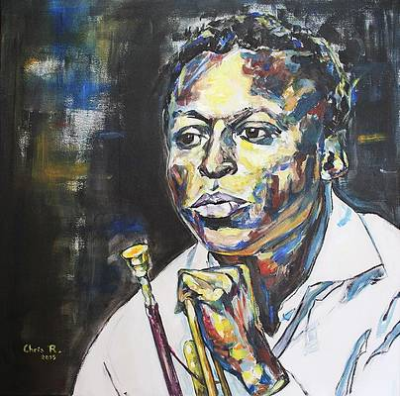
“Flamenco Sketches,” by Christel Roelandt
.
.
After Chasing Coltrane
* * * * *
Borne into preaching
he ought to utter these,
blew them words out
as glorious air instead
* * * * *
What’s between Coltrane & Einstein?
Infinity
* * * * *
A Love Supreme ——
sermons
psalms
petitions
the word of the Lord
straight from the horn
.
by Anggo Genorga
.
___
.
A Love Supreme
Do you know it? The love or the music?
One rarely gets both, but some do. You’ve
seen them. You’ve gotten nothing and they
have both. Love and music. Throw in some
money and, we could say, they have it all.
I do not. Not that I have not tried.
I have been on that bench unlacing my skates.
I have received the low scores that broke Tanya’s
heart. Tanya Harding had a tough life. Tanya
never knew privilege.
You know you are not on the receiving end
when people start spitting in your mouth.
Many know sadness. If you have not, you should
consider yourself lucky. Some are foolish enough
to take all the credit for their well-being.
These people are delusional. These people
are semi-conductors. They do not stand before
the symphony at rehearsal. They stand at the side.
They are in the hive but not beside the queen.
The thrum of life keeps them going.
There is no time to waste. The bees follow each other
into the box. They crawl. They chomp at the bit.
They fall. My name is Miss Derby and we are in
Kentucky. Stand on the scale. Lower your britches.
How many years have you been racing?
John Coltrane built statues. He worked in bronze.
He made the Taj Mahal. He installed dishwashers.
Coltrane sang in braille. Everything he shipped, went
First Class. Remember that. Air Mail, not bulk. One
note at a time, sent to each and every one of us.
The buzz blocks the music. The hive thrives on silence.
Coltrane played a music that lulled the bees. He composed.
He annulled. He excavated. He killed. Then he rested.
Everyone who has listened knows the terms of his contract.
Like His Master, he bowed to none.
.
by David Lohrey
.
___
.
John Coltrane’s Cancer
Coltrane’s calling: all he did was everything
In his power, throwing sparks at the darkness,
Extolling what he alone conceived—the Divine
Alchemy of his own design, sheets of sound
with no barriers between pursuance, his spirit,
and interstellar space, this gift a supreme kind
Of Love.
But like some indefatigable oyster, filtering
the sins from a fathomless sea, he transformed,
instigating storms no human being can contain.
And like any authentic prophet, with fire cloaked
as expression, every revelation must supersede
the messenger, even mortality, ever insatiable as
It Is.
And so, those bilious juices grew emboldened,
their corrosive wake drowning him in everything
he tried not to be, leaving him earthbound and
anchored, even as his soul strained, relentlessly
toward infinity. And death, etiolated in the end,
silenced him much as a passing shadow consumes
The Sun.
.
by Sean Murphy
.
___
.
Chicken Shack
Somthin’ else.
Jimmy
‘Chicken Shack’
Smith
on the B-3
JAZZ Aroused
McFadden on the horn
“Duck” Bailey
bangin’ on the drums
Hear THE SERMON —
a Silver tribute – FUNK
the opening beat stays
in a good groove.
“C-S” carries the mood —
Burrell makes an entrance,
and moves along nicely.
There is a sense of time.
A sense of soul
takes over the pulpit
.
by Russell duPont
.
___
.
Love Me Some Miles
His trumpet, that of a pied piper
only he is the one with the bite
of a viper, his venom coursing through
my veins, addicted, I’m forever sprung
never to succumb to the horn of another
Miles, my melodic lover, a tattooed
Valentine, each note a salutation:
proclaiming, you’ll always be mine
Special deliveries of gifts abound
No one can replicate his sound
My teenage crush, now a life
long, loving devotion to Miles
.
by Aurora M. Lewis
.
___
.
Bitches Brew
Only a teenager
A hopeful drummer
I saw the album
In the racks
Picked it up to
See the electrifying
Almost frightening cover
So—Miles Davis
Who is this to me,
A rock’n’roll white boy?
Trumpet player, maybe?
No Nope
Put it back
Grabbed Crosby Stills and Nash
A really good album
Fast forward
The college dorm
Music mingles up and down and across
New sounds shared room to room
An education!
But none like the school across the hall
From whence comes
Dangerous and swirling notes
Discordant tones
Time signatures from hell
Irresistible pulses from
The Wild
I am drawn in
Standing in his doorway
Whoa, I ask, what’s this?
He points to the jacket
Miles, he says,
And his new band
Oh yeah, I nod
Seen it before
Miles Davis
He’s so badass,
I lie, badly
On the turntable
“Spanish Key”
Rumbles on
Freight train steady
A rhythm section
For the ages
Impelling movement
A paradox of rhythm:
Simple and compound
Smooth and thunderous
Solid and Mosaic
Organic and crafted
Then the Trumpet
Sailing high above
Declaring a new way
But who knows this way?
Who can hang?
Who can feel this vibe,
The unspoken expression
Percolating up from the
Deep well of the soul?
The hypnotic
cadence fades
There’s others, he says
indicating:
Coltrane and Mingus
Dizzy and Bird
Not now, I say, thirsty,
Just play that one again
.
by Bob Walters
.
.
.
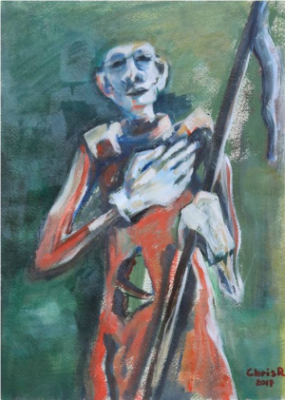
“Those Were Days of Roses, Poetry and Prose,” by Christel Roelandt
.
.
Black Holes And Blues
Tacking, the square rig tense, and each bending
breeze a rapturous suspension; tall smiles
all around, leaning in toward isles
torn by tornadoes, almost lamenting;
blues on blues, the wild mast a metronome,
hoisting waves that roll and roar and riot,
with all voices deafened in the pilot
house, as we haul squid jigs and head for home.
All is lost, amidst laughter and the squall;
lost Dave pitzing his high-strung violin,
Michael’s cello thrums; lost skipper’s brass grin
at Jerry’s jazzy, sliding keyboard sprawl.
Dark first stars light the giddy levity
above the gushing black hole’s gravity.
.
by John Hawkins
.
___
.
At Jackson Reef
At Jackson Reef,
salt flies off
the seesaw into
Heaven where it
reminisces of
the symptoms of heroism
during its nights
in Tunisia
before the reef
fell into the sea and the
seesaw floated like art
that will never
be properly
appreciated.
…………….(for Charlie Parker and Dizzy Gillespie)
.
by R. Bremner
.
___
.
Bumpin’ On Sunset
There must be a word
for the fish I caught
on a lovely day in the Atlantic
the ocean calm as a puddle
scaled
filleted
blackened
or grilled
I praise thee
I bring thee gifts
I sign on the dotted line
therefore we are married
if you can hear me now
I weep for your bravery
oh trout
oh flounder
oh red drum
forgive me
your beauty is overflowing
I have made a reservation
we will meet again in the afterlife
we will listen to Wes and Ron Carter
and I will betray thee with lemon
.
by John Stupp
.
.
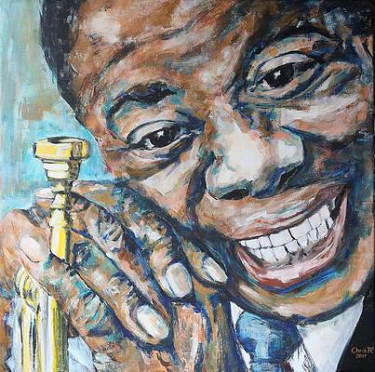
“What a Wonderful World,” by Christel Roelandt
.
.
Myth Breakers – Or Why Jazz Musicians Always Pack Their Instruments Straight After The Gig
Some think for cleanliness some for pleasure
Keep ‘em shining gold and true
Maybe to avoid instrumental life-support later (no insurance dues)
Some say there be thieves dat be sidling through
But truth be known many moons ago
Instruments after gigs held parties
Dished dirt on all our heroes
When their backs were turned
Told truth some lies some gossip
(Instrumental license is a treacherous blues)
‘Bout wives, husbands, lovers, bridges
Cooked up rumours
Fingered each others’ buttons
Played the occasional tune
For example, Post-gig Pre-morning
All the folks short gone
Just-hushed night-time stages start to tremor
A scrape of steel, a squeak of sliding, whispering, scratching,
Tentative warm-up notes and slurs
Then the jivers start to deal
I was with Miles once
Well I was with Coltrane
Getz touched me all over for fifteen years said Selmer
Billie held me when I was in pain
Big bass hummed but didn’t say nothing
Piano just hinted a crushed chord
Caught in modesty’s remorse
Well I’ve been handled by every motherfucker
And I’m tired of this game
Your flat, Alt, that’s why
Been years since you held a Dolphy tune
But Beautiful sounded sweeeeet tonight, my friend
Yeah, but his breath was bad
And she played chords like windows to her soul
But damn what clammy hands
Did you hear that c-sharp he squeezed me shout?!
Man that shit was hot!
Yeah but then he missed the other note
I don’t dig these modern guys
Think his wife knows
Back-stage what they be puttin’ down?
D’ya think her husband cares?
I hear bot-a-dem playin’ phrygian games
Nightly on the stairs
Cymbals hiss
Trumpets flash n strut
Tenors drip their swagger
Twilight braggadocio hour ‘pon hour ‘pon hour
Drums collectively pun-tu-ate
All the highs and lows
Piano faithful piano
So modest oh molasses sweet
Bass clarinet, goddamn wise
Knows science can`t grasp the beat
Bass man keeps reserve
Mum’s the word no echo;
Searching for the truth
All-a-we
All-a-we
All-a-we Alone together
So it went every night
Presenting a significant danger
Musicians’ reputations
As players – or Players
Like wildfire were spread
Bad PR lasts for-ever
Jazz maestros and mentors mooted hard and long
Riffed a unison conclusion
Gotta close these jive-halls down
Gotta break these rumour-mongerers up
God-damn gossip-dealing swill-spilling story-spinning upstarts gon’ be put to ground.
So the agreement was signed
The deal was done
No dissent allowed from this time round
Let’s put our instruments in cases and cars
Stuff bells with cotton socks
Close the lids
Damp the strings
Wrap treacherous mic in woollen cloth
So there’s the truth of the silence and cleansing
After the gigs are done
The instrumental parties are over
That’s how the musicians won.
Ba-du daa duu daa duu dat. Schlu-bam.
Or did they?
.
by Auro Fraser
.
___
.
Hipness Is What It Is
…………………………….. You into a hip trip
…………………………………Maybe hipper than hip
…………………………………But what is hip?
…………………………………-Tower of Power
Nothing but threadbare memories of what is hip.
Smoke hung like a cloud bank; how we love what is hip.
Letters from the dead like onion-skin on the chair.
We’ll leave them behind; tonight we crave what is hip.
Sunken in among the slots and poker machines,
the Wolf Den packed. We can’t get enough what is hip.
David, “Doc,” Rocco, Greg, Lenny, Emilio,
and a list of cats who won’t outlive what is hip.
The bells and circus music of the slot machines
gagged by T.O.P. can’t get above what is hip.
You’re still a young man, so why don’t you make the scene;
the Oakland boys will release the dove – what is hip.
You part of the new breed, smoke only the best weed,
but you still ain’t sure that you can judge what is hip.
Just stand before the Tower of Power and fly.
What it is, Johnnie? – groove to what is hip.
.
by John L. Stanizzi
.
___
.
Driving Around Pittsburgh Through An Early March Snow Listening To
The Jimmy Woods Sextet’s Conflict
The singular imagination aims at producing
that which is both ephemeral and eternal.
At least I think that’s what Bachelard meant.
Today I drove while white fluff piled up
on my windshield and on the sidewalks
and streets and the roofs of the buildings
around me and while somehow, recordings
of songs from some fifty-five years ago
made their way through the stereo system
of my beat-up, silver bullet of a minivan.
And it didn’t matter how much time was left.
.
by Scott Silsbe
.
___
.
John Barry’s The Persuaders Theme
When I was only eight, I used to stay up very late,
sneak out of bed into the living room
where a small television set sat sedate,
patiently waiting for my tiny finger
to secretively commence The Persuaders Theme.
Electrified by the harpsichord’s beats,
I sat in the dark to imbibe the opening scene,
the rhythm of speeding wheels,
the exhilaration of momentum,
the aestheticism of bosoms and rears,
the unravelling of symmetries,
the eloquent eyes to which eyes resonate,
the fascination with a coat of arms,
the geniality of comradeship
and Sinclairean lordships,
the blue-eyed affability of Tony Curtis
and Roger Moore’s winsome cordialities
engaging in breathtaking persuasiveness.
.
by Susie Gharib
.
___
.
Maiden Voyage – Looking Back
Things change. Nothing strange about that.
But it doesn’t get any better than this compact
disc that goes all places with me in my van,
part of the short list I keep handy because I can
still play them, CD systems being standard on
the dashboards way back when, so long ago,
2010, and because jazz gets you down the road
like nothing else. This Herbie Hancock five-man
session, proof positive it’s good to be alive,
came out and sailed across the ocean in 1965,
and is still cruising now along the rough coast
of Pandemic. The winds of joy and optimism
somehow still prevail. Freddie Hubbard, up top
in the crow’s nest, fills his blowing space with licks
and trumpet tricks and those double time lines that
all the best ones play, jazz’s counterpart to being
able to hit the curveball if you want to play your
baseball in the majors, and all that with a big sound
the kind that the clarinetist Jack Brymer, from across
the Pond, described as forthright, forthright! so very
British. Today someone would much more likely say
Freddie plays all up in your face. George Coleman,
on the tenor, perfect match, quite simpatico.
Herbie keeps the ship aright with a light touch on
the keys. Ron Carter, Tony Williams—What can you
say? I will not try to squeeze the bass and drums into
the metaphor. I ride along the shore. They are still
out there. You cannot take a maiden voyage back
in time and do it all again by definition. But track 5
is the Dolphin Dance, and in these times of shining
silver techno wonders, I can hear it all once more,
skimming along the blue green as the sun goes down.
.
by Joel Glickman
.
___
.
Mixtape
broken cassette tape
what was I thinking
when I sorted songs
I thought you would like
and you said it’s fine
but there was no joy
no hint of what
I thought was there
when I sorted songs
I thought you would like
earphones on
keeping the beat
you looking at me with those eyes
I always think of
.
by Wayne L. Miller
.
___
.
Mom, At Home
To caption her black-and-white flippant pose—
her smile real, hair teenage dark—the musty
yearbook quips, “Good things: small packages.”
At five-two but buoyant on tennis calves,
she claimed she flunked college chemistry
from too much fun in pre-war Chicago,
finally free and far enough from home.
In high school during the Depression
she and the girls and their latest boyfriends
would escape to secluded cul-de-sacs
in abandoned developments, fix
their headlights on the white discs of new
smooth pavement, dance till Cleveland’s midnight
to the Dorseys and Goodman on the radio,
Artie Shaw, her favorite—A Strange
Loneliness. Moonglow. “You kids don’t know
how to dance,” she’d tell my Sixties sisters,
eyes sparkling, mouth slightly parted, teeth
still white as a commercial girl’s. Until
somebody’s wedding, I only saw Mom
dance big-band behind an ironing board
to the tunes on TV shows, the long arms
of my father’s white shirts, damp, unrolled
from the basket, opened wide and empty,
flattened, then pressed, first one, then the other.
.
by D.R. James
.
___
.
Boy Blue, 1956
When Terry sighs, I guess that it’s to protest.
As Satchmo’s combo swung through Black and Blue,
I mentioned that her father, Richard, promised
introduction to the great bands that he knew
from years producing records of their work.
“He never will,” I say. “Tonight is proof.”
I silently define him as a jerk,
painfully puzzled why she’s so aloof.
Terry slightly grins when Red, Red Robin
ends. Satch lowers his horn, mops his face,
smiles broadly and roars, “Richard, my man!”
Unsure why, I feel like a disgrace.
He signs his album, Ambassador Satch. “You,”
he growls, “You’re way too young to be so blue!”
.
Note: In the late 1950s, major big bands performed at Wampler’s Lake in Michigan’s Irish Hills—including Les Brown, who proved his renown; Ray Anthony, who marched us around the dance floor to “When the Saints Go Marching In”; and Stan Kenton, who smoothly lifted us to transcendent moods. Duke Ellington held court, and Louis Armstrong, recently off his world tour (Ambassador Satch album 1956), performed the evening noted here.
.
by Ralph LaRosa
.
.
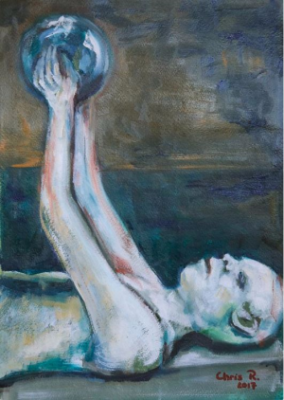
“Apollo in Agony,” by Christel Roelandt
.
.
Radiobird
“April in Paris” wafts from a radio.
…….Warm, soaring,
…….mid-tempo beat.
Not Count Basie’s brassy
Grammy Hall of Famer.
A smoother version, symphonic the aura.
Strings from Arturo Toscanini’s NBC
Orchestra back a jazz saxophone,
an alto which has wandered onto highbrow turf.
The scandalous pair, well-behaved Classical
and rebellious Bebop, are going to town.
It’s 8:30 AM. On FM, “Bird Flight,”
…….a voluble jazz savant the host.
I’m on an exercise mat
pulling and pushing limbs
…….like they’re trombone slides.
Hold a high plank for precisely
…….two minutes and forty-six seconds,
going beginning to end of
Gershwin’s “Summertime”
while Bird unspools the melodic line
with a lyricism that
…….breaks the heart.
It’s also from the 1950 strings album
titled, what else, “Charlie Parker with Strings.”
A few years later,
Charlie’s once more with classical musicians
at the jazz club named for him.
On Birdland’s stand, a Sunday night,
incensed by what he is hearing
…….(or not hearing),
fires the whole string section—in mid-set!
Something famously temperamental Toscanini
…….would never have dared.
Have a love-hate relationship with strings myself:
…….hamstrings.
If the left one is loose,
…….the right is drum tight.
If right is in the groove,
…….the left is out of tune.
But they can’t be fired
…….and they won’t quit.
Violins, viola, cello, and harp
…….take a break.
The jazz savant cues a Bebop original
with no strings to tamp razor edges:
…….“Scrapple from the Apple.”
Which reminds me of the Granny Smith
…….in the kitchen for later,
only the next tune, “Salt Peanuts,” tempts.
Exotic riffs saturate the air,
the rhythm section’s opening-vamp of
…….“A Night in Tunisia,”
Bebop’s Beethoven’s “Fifth.”
…….Perfect for crunches at 195 BPM.
“Hot House” now up,
…….great timing —
my burn just kicked in.
Charlie was not one for crunches,
…….no exercise highs for him.
Instead, liquor flights and heroin delights.
Suddenly dead
in dramatic style,
giving out in the Fifth Avenue suite of Nica—
the Baroness Kathleen Annie Pannonica de Koenigswarter.
…….Legendary patron of Bebop jazz,
…….rich and mysterious.
The summoned doctor took the late
Charles Parker Jr. to be a man of fifty to sixty.
He was thirty-four, the Baroness corrected.
With all my body work,
plus cardio in the afternoon,
I may live to one hundred and four.
But I would gladly lop off seventy years
to have played from an alto sax sounds that
no one has ever heard before—
…….full-bodied sounds
……….with waterfall force,
…………..sounds that bop
……………..like none other.
Or would I? What price glory?
.
by Peter Gregg Slater
.
___
.
Sons Of Sicily
No matter which road you travel,
Salapurata is two hours from Vicari,
our family’s ancestral home.
Salapurata destroyed in ’68
by earthquake, then rebuilt nearby.
Only a 5.4 temblor, but with stone
& mortar, a lot can fall down.
Salapurata is renowned for vineyards
& Dominick LaRocca, son of a shoemaker,
who emigrated to New Orleans
& taught himself cornet. He was famous
for ‘Darktown Strutters Ball.’
I’ll be down to get you in a taxi, honey
My mother sang that all the time.
*
Her father, Joseph Disparte, was born
in San Antonio or maybe Waco.
The family had come from Sicily through
New Orleans. He was two years older
than LaRocca & played cornet
in an all-Italian LA traveling band.
All three of his children took up
instruments. Mother played piano,
Uncle Joe played trumpet & the eldest
Uncle Phil so good on tuba,
he was spared World War II combat,
assigned to the US Army band.
*
‘Nick’ LaRocca was a good musician
with ‘a strong lip’ but no virtuoso.
In 1925, he’d had a breakdown.
A decade later, he gave up jazz.
By the 1950’s, he was bitter,
firing off letters, claiming he was
‘The Christopher Columbus
of Music,’ & ‘The Creator of Jazz.’
He influenced trumpeters Red Nichols,
Phil Napoleon. His classic ‘Tiger Rag’
was covered by Louis Armstrong
& others. He deeply resented their fame.
*
Grandpa Joe could be stubborn,
but he had a steady disposition.
He’d argue with Nana, sometimes
loudly & maybe he’d drive around
the block a few times to let off
some steam. But he lacked that fury,
that braggadocio. Never thought
about being famous. Never entered
his mind. Never thought to travel
to see the village of Vicari.
Grandpa Joe was a family man,
an American & the past was past.
.
by Joan E. Bauer
.
___
.
Dream Hunger
This train snakes lazily north,
up the spine of the sleeping continent,
faithfully following the serpentine track
like black smoke follows wind across blue sky.
As limp as a new corpse,
fitfully awake in this coffin bunk,
I drift away from the core of myself,
like a saxophone solo
swerves from the melody,
scattering a few bleated notes
of the tune to find a way back home.
Just hours ago,
the ones I love stood together
by the tracks like a knot pulled tight.
We traded final kisses,
tender, trembling embraces,
pathetic assaults against mortality
in each other’s arms.
My arms dangle uselessly now,
like broken wings, like Monk
fracturing a chord, a note, a key,
or shattering silence like glass.
Behind my closed eyes,
I see the two figures clearly still:
standing by the tracks,
gazing into the future,
watching caboose lights slither away
into the steamy languid dank pitch
of the Southern summer night.
Their wan faces shimmer in my past.
Like pale, orbitless moons,
they absorb my fading light.
What ..is.. lost.. to ..love
is ..lost
forever.
While this train hauls my rattling bones
in the cage of my flesh,
on the other side of the continent,
hours before the simultaneous
history of this moment,
my lover listens to music as she
brushes her hair before bed,
glances in the mirror and,
seeing a reflection of herself,
she thinks of me, and wonders
where I sleep tonight.
This night, swimming with the river
of time and space, falling through
the black tunnel of this train,
like flotsam adrift between
the worlds I know,
I do not sleep.
No sleep – no dream.
But like all journeys,
this one must begin with a dream,
a blurring of boundaries
like the imperceptible slope of the plain
from which the mountain slowly rises.
In the beginning,
there must be a dream of awakening,
a dream within a dream.
Lacking this,
though I know how to get there,
I don’t know where to go.
.
by T.S. Davis
.
.
_____
.
.
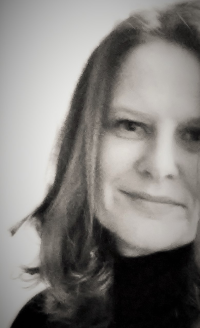
The artwork appearing throughout this collection is published with the gracious consent of Christel Roelandt, a Belgian painter from Ghent in Flanders. Since 2006 she has lived by the Mediterranean in Beirut. Her work focuses on the human form; faces and nudes, and finds inspiration by all things beautiful and often by books, music and films.
.
.
___
.
.
Poets contributing to this collection (listed in the order in which their poems appeared)
.
.
.
Michael L. Newell currently lives and writes on the Southeast Florida coast.
.
.
___
.
.

Dr. Roger Singer was in private practice for 38 years in upstate New York. He has four children, Abigail, Caleb, Andrew and Philip and seven grandchildren. Dr. Singer has served on multiple committees for the American Chiropractic Association, lecturing at colleges in the United States, Canada and Australia, and has authored over fifty articles for his profession and served as a medical technician during the Vietnam era. Dr. Singer is the Poet Laureate of Old Lyme, Connecticut. He has had over 1,070 poems published on the Internet, magazines and in books and is a 2017 Pushcart Prize Award Nominee. He is also the President of the Shoreline Chapter of the Connecticut Poetry Society.
.
.
___
.
.
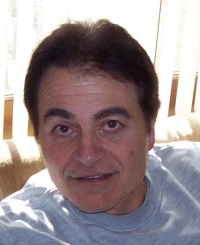
.
Michael Keshigian, from New Hampshire, had his fourteenth poetry collection, What To Do With Intangibles, released in January, 2020 by Cyberwit.net. He has been published in numerous national and international journals and has appeared as feature writer in twenty publications with 7 Pushcart Prize and 2 Best Of The Net nominations.
(michaelkeshigian.com)
.
.
___
.
.
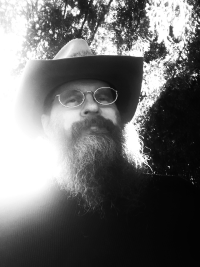
Frank Wilkes lives in the Santa Cruz Mountains of California. He enjoys writing poetry and composing mellow music. His work has been published in The New York Quarterly, On The Bus, Slipstream, and the Santa Cruz Good Times Weekly, among others.
He can be reached at [email protected]
.
.
___
.
.
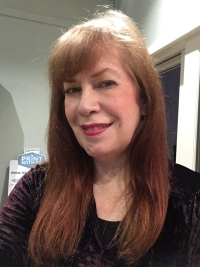
Patricia Carragon’s poem “Paris the Beautiful” won Poem of the Week from great weather for MEDIA. Her fiction piece “What Has to Happen Next” is nominated for Sundress Publications Annual Best of the Net Anthology. Her latest book from Poets Wear Prada is Meowku. Her debut novel, Angel Fire, was just released by Alien Buddha Press. Patricia hosts Brownstone Poets and is the editor-in-chief of its annual anthology. She lives in Brooklyn, NY.
.
.
___
.
.
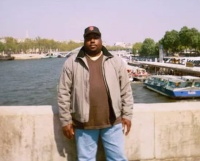
Erren Kelly is a two-time Pushcart nominated poet from Boston whose work has appeared in 300 publications (print and online), including Hiram Poetry Review, Mudfish, Poetry Magazine, Ceremony, Cacti Fur, Bitterzoet, Cactus Heart, Similar Peaks, Gloom Cupboard, .and .Poetry Salzburg.
.
.
___
.
.
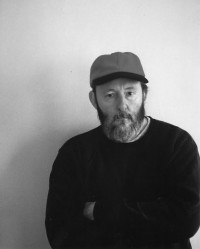
Russell Dupont is an artist and an author whose artwork is included in a number of public and private collections. He has published two novels, King & Train and Waiting for the Turk; two books of poetry; and two non-fiction chapbooks. His essay, “The Corner,” is included in the anthology Streets of Echoes. His work has been published in various newspapers and literary magazines. He was the founder & publisher of the literary magazine,.the albatross.
Visit his website by clicking here
.
.
___
.
.
Freddington works as a shipper/receiver in Toronto, Canada, and has been a lifelong jazz fan ever since he was “corrupted” as a teenager by Charles Mingus’ “Wednesday Night Prayer Meeting.”
.
.
___
.
.
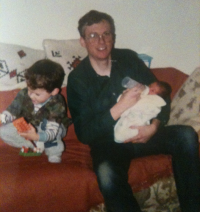
John Stupp’s third poetry collection Pawleys Island was published in 2017. His manuscript Summer Job won the 2017 Cathy Smith Bowers Poetry Prize and was published in August 2018. A chapbook entitled When Billy Conn Fought Fritzie Zivic was published by Red Flag Poetry in January, 2020. (From 1975-1985 he worked professionally as a mediocre jazz guitarist). He lives near Pittsburgh, Pennsylvania and can be reached via email at [email protected].
.
.
___
.
.
.

Social issues are a major focus of Milwaukee poet Phyllis Wax. Her poetry has appeared previously in Jerry Jazz Musician and in many other journals and anthologies online and in print. A Best of the Net and Pushcart Prize nominee, she has read in coffee houses, bars, libraries and on the radio. She can be reached via email at [email protected].
.
.
___
.
.
Terrance Underwood is a retired Rolls-Royce Service Engineer, veteran, College Grad (B.A. History) who has been listening to recorded jazz music since he was 5-6 yrs old. One of his first memories is listening to a 78 version of “Cherokee” by Charlie Barnett.
.
.
___
.
.
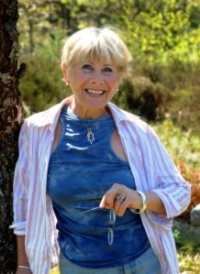
Arlene Corwin…Brooklyn born. Age 85. Harpist, pianist, singer. High School of Music & Art. Hofstra Univ. BA. 2 films (lead in one, composer in the other — see IMDb) original lead in “The Nervous Set, introducing “Spring Can Really Hang You Up the Most”. 19 published poetry books, yogin since the age of 20-something. Lives in Sweden. Jazz musician forever. Mother owned jazz club, The Turf with Slim Gaillard in the 50’s, Hempstead, Long Island. (See.Arlene Corwin. Poetry.com .for longer version.). See Youtube for Arlene and some good tunes.
.
.
___
.
.
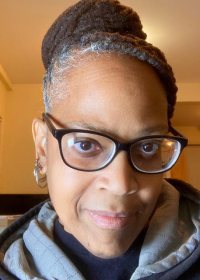
Dana I. Hunter poetry is featured in the current edition of Mightier – Poets for Social Justice. In addition to poetry she has a published short story and screenplay which won Honorable Mention in the first ‘Scriptapalooza’ contest. She received her B.A. in Communications from Upsala College. Ms. Hunter can be reached for poetry inquests at – [email protected]
.
.
___
.
.
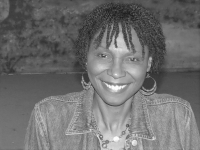
Antoinette F. Winstead, a poet, playwright, director, and actor, is a professor at Our Lady of the Lake University in San Antonio, Texas. Her poetry has appeared in several publications, including Voices de la Luna, Langdon Review, Texas Ballot Poetry, TejasCovido, and The Poet Magazine. Her poem “JAZZ” received first place for the 2020 Persimmon Prize. She is currently president of the Alamo Area Poets of Texas and vice-president of the San Antonio Poets’ Association.
.
.
___
.
.
photo by Donna Termini

David Dephy is a Georgian/American award-winning poet. The winner of the 2019 Spillwords Poetry Award, the finalist of the Adelaide Literary Awards 2019 for the category of Best Poem. He was named as A Literature Luminary by Bowery Poetry and The Incomparable Poet by Statorec. His works have been published and anthologized in USA, UK and all over the world by many literary magazines, journals and publishing houses. He lives in New York.
.
.
___
.
.
photo by Alice Mello
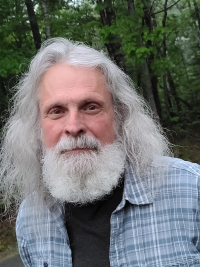
Jim Mello is a counselor and clinical supervisor in the substance use disorder field. He’s also a part time clergy person, and has taught in the University of Maine system as an adjunct professor. Besides People, .his passion is music and he.became a poet by default. He has three books published, two by Moon Pie Press, and one self-published.
.
.
___
.
.
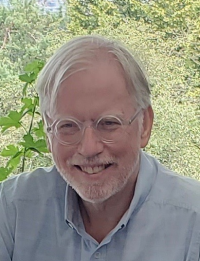
P.W. Bridgman’s first book of poems, entitled A Lamb, was published by Ekstasis Editions in 2018. A second, entitled Idiolect, is due from the same publisher in June 2021. Bridgman’s writing has appeared in Jerry Jazz Musician, The Maynard, Grain, Moth Magazine, Antigonish Review, Glasgow Review of Books, The Honest Ulsterman, Galway Review, Ars Medica, Bangor Literary Journal, Crossways Magazine, The Idler and other periodicals and anthologies. You can learn more by visiting www.pwbridgman.ca.
.
.
___
.
.
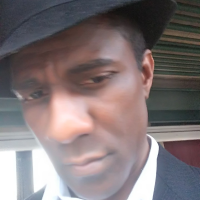
Prince A. McNally is a Brooklyn-born poet, writer, essayist and philosopher whose work has appeared and is forthcoming in numerous literary magazines, journals and anthologies throughout the U.S. and abroad. He is currently working on his first collection of poetry as well as a book of philosophy due out in 2021. To view more of Prince’s work, feel free to follow him on FB Prince A. McNally, Instagram @prince_thepoet, Twitter @princeamcnally. You may contact him via email [email protected].
.
.
___
.
.
Geoff Polk lives in Cleveland, where he write poems, stories, and nonfiction, and plays jazz saxophone and clarinet. He teaches English composition and literature at Lorain County Community College. He attended Berklee College of Music and received an MA in creative writing from Cleveland State University. He was editor of the literary magazine Whiskey Island. Geoff’s poems and fiction have appeared or are forthcoming in Cobalt Review, Brilliant Corners, Voices of Cleveland, The Little Magazine, Context South, Black River Review, Green Fuse, Coventry Reader, and elsewhere. Nonfiction publications include articles and reviews on literature and jazz. He has interviewed David Foster Wallace (anthologized in Conversations with David Foster Wallace, University of Mississippi Press), New Orleans music documentarian Stevenson Palfi, jazz trumpeter Benny Bailey, and authors Ken Kesey, Studs Terkel, Nat Hentoff, and others.
.
.
___
.
.

Josie Rozell writes to the long-notes of Nina & Billie and laces the stanzas with a little Miles Davis. She lives in Hawaii where she plays jazz mandolin and is currently at work on her first collection of poetry, Articulated Soul, coming December 2020. More of her work can be found at www.thehydrogenjukebox.com, and she can be reached at [email protected].
.
.
___
.
.

DH Jenkins worked as an associate professor of English/Speech for the Univ. of Maryland in Japan and Korea for many years. His jazz play, Ti Jean, about Jack Kerouac, has been staged in Tucson, AZ and in St. Joseph, MO. Thirteen of his poems are set to music in the film Call From a Distant Shore, a collaboration with musician/artist Bill Scholer, June 2020.
.
.
___
.
.
Editor-in-chief for From the Ashes (Arts & Literature 1990-1994) and Swivel: Vintage Living (vintage lifestyle 1994-2000), Tam Francis has also been a poet (two-time, National Poetry Slam city team, Scottsdale Center for the Arts Poetry Art Walk Featured Poet, New Times Feature Poet, Visual Voices Featured Writer) and short story wordsmith (two-time shortlisted for Scare the Dickens Out of Us contest). Published in Texas Writer’s Journal, Short Edition, Coffeelicious, Awakenings, Red Dog Journal, Spoken Word from Lalapalooza, and other digital and print magazines.
.
.
___
.
.
photo by Guiseppe Velasco

John Jack Jackie (Edward) Cooper is the creator of “These Are Aphorithms” (http://aphorithms.blogspot.com), author of Ten (Poets Wear Prada, 2012), Ten … More (Poets Wear Prada, 2016), and translator of Wax Women, with French texts of the original poems by Jean-Pierre Lemesle (International Art Office: Paris, 1985). His work has appeared widely, in print and online. A graduate of the University of Pennsylvania, he is editor and co-publisher of Poets Wear Prada, a small press based in Hoboken, New Jersey. He lives in Paris.
.
.
___
.
.
.

.
Dan Franch, who grew up in the Chicagoland area, currently lives in Estonia. Living a life full of random experiences and adventures and people, he currently owns his own English & coaching company.
.
.
___
.
.
.

Kristofer Collins is the books editor for Pittsburgh Magazine. He is the author of several poetry collections, most recently. Salsa Night at Hilo Town Tavern.published by Hyacinth Girl Press. He lives in Pittsburgh, PA with his wife and son.
.
.
___
.
.

Born in Norman, Oklahoma, Carrie Magness Radna is an audiovisual cataloger at the New York Public Library, a choral singer and a poet who loves traveling. Her poems have previously appeared in The Oracular Tree, Muddy River Poetry Review, Poetry Super Highway, Walt’s Corner, Alien Buddha Press, Cajun Mutt Press and First Literary Review-East. Her upcoming poetry collection, In the blue hour (Nirala Publications) will be published in early 2021.
Visit her blog by clicking here
.
.
___
.
.

.
Susandale’s poems and fiction are on WestWard Quarterly, Mad Swirl, Penman Review, The Voices Project, and Jerry Jazz Musician. In 2007, she won the grand prize for poetry from Oneswan. The Spaces Among Spaces from languageandculture.org has been on the Internet. Bending the Spaces of Time from Barometric Pressure is on the Internet now.
You can reach her by email at [email protected]
.
.
___
.
.
photo by Imogen Christine
.
Jordan Trethewey is a writer and editor living in Fredericton, New Brunswick, Canada. He is also a husband, father (to two kids, a black cat, and a Sheltie) and beer-league softball player. Some of his poetry, fiction and non-fiction inhabits on-line publications such as Visual Verse, Fishbowl Press, Red Fez, The Blue Nib, Terror House Magazine, Califragile, Jerry Jazz Musician and Spillwords. Jordan is an editor at redfez.net, and openartsforum.com. His latest book, Spirits for Sale, is available on Amazon. His poetry has also been translated in Vietnamese and Farsi. To see more of his work go to: https://jordantretheweywriter.wordpress.com.
.
.
___
.
.
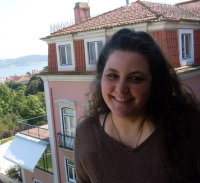
Millicent Borges Accardi has received fellowships from the National Endowment for the Arts (NEA), Fulbright, CantoMundo, California Arts Council, Barbara Deming “Money for Women,” and Fundação Luso-Americana (FLAD). Most recent poetry collection, Only More So (Salmon). IG and Twitter @TopangaHippie
.
.
___
.
.

Nepalese poet Bhuwan Thapaliya works as an economist and is the author of four poetry collections. He is an avid Jazz aficionado. His poems have been widely published in international magazines and journals such as Kritya, Foundling Review, FOLLY, Trouvaille Review, Pendemics Literary Journal, Pandemic Magazine, The Poet, Valient Scribe, Strong Verse, Ponder Savant, International Times, Taj Mahal Review, Poetry Life and Times, VOICES (Education Project), Longfellow Literary Project, Poets Against the War, among many others.
.
.
___
.
.

After having taught middle and high school English for 32 years, Marianne Peel is now nurturing her own creative spirit. She has spent three summers in Guizhou Province, teaching best practices to teachers in China. She received Fulbright-Hays Awards to Nepal (2003) and Turkey (2009). Marianne participated in Marge Piercy’s Juried Intensive Poetry Workshop (2016). Marianne’s poetry appears in Muddy River Poetry Review, Belle Reve Literary Journal, Jelly Bucket Journal, among others. Marianne is also a veteran musician, playing flute/sax and singing in various orchestras, bands, choirs, and jazz bands her whole life. She has a collection of poetry forthcoming in 2020 from Shadelandhouse Modern Press.
.
___
.
.

Mark Fogarty is a poet, musician and journalist. He curates The Jaco Pastorius Gig List on Facebook
.
.
___
.
.

Anggo Genorga is from the Philippines and works as a manager of a local band called Wonder Woman’s Electric Bra. Recent writings can be found at Horror Sleaze Trash, Devote, Duane’s Poetree, Outlaw Poetry Network, Paper And Ink Zine, Red Flag Poetry, In Between Hangovers, Dubai Poetics, The Odd Magazine and Walking Is Still Honest Poetry Press. Also at Empty Mirror, Mad Swirl, Guide To Kulchur Creative Journal, Silver Birch Press Bukowski Anthology and Verses Typhoon Yolanda, a book for benefit published by Meritage Press and the now defunct The Screech Owl and Dead Snakes.
.
.
___
.
.
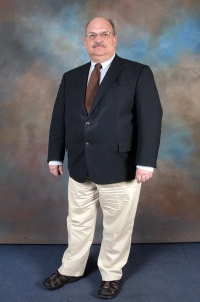
David Lohrey grew up in Memphis and graduated from University of California, Berkeley. David’s plays have been produced in Switzerland, Croatia, and Canada. His poetry can be found in literary journals in the US, .Australia,. the UK, .India, .Canada, and Malawi. His fiction can be read online at The Broke Bohemian, Terror House, Literally Stories, and others. ..David’s .The Other Is Oneself,. a study of 20th century .Postcolonial novelists, was published in 2017 in Germany. . .Machiavelli’s Backyard, his. first .collection of poetry, was published by Sudden Denouement Publishers. .His newest collection .Who Started the Fires? .is soon to be released. .He lives in Tokyo.
.
.
___
.
.
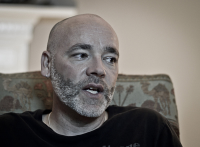
Sean Murphy has appeared on NPR’s “All Things Considered” and appeared in USA Today, The New York Times, The Huffington Post, and AdAge. A long-time columnist for PopMatters, his work has also appeared in Salon, The Village Voice, Washington City Paper, The Good Men Project, Memoir Magazine, and others. He has twice been nominated for the Pushcart Prize, and his chapbook, The Blackened Blues, is forthcoming from Finishing Line Press. To learn more, visit seanmurphy.net
.
.
___
.
.
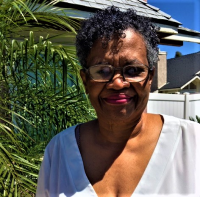
Aurora M. Lewis.is a retiree having worked in finance for 40 years. In her fifties, she received a Certificate in Creative Writing-General Studies, with Honors from UCLA. Aurora’s recent poems, short stories, and nonfiction have been accepted by The Literary Hatchet, Jerry Jazz Musician, The Blue Nib, Trembling in Fear, Jitter Press, Scary Snippets, Copperfield Review to name only a few.
.
.
___
.
.
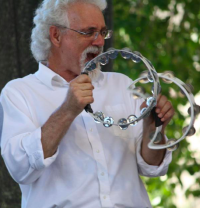
Bob.Walters.grew up in the bayou country of East Texas. After graduating from West Virginia University, he has spent the last few decades teaching Literature, Writing, and Creative Writing in Asheville, NC, where life is good and music is wonderful. He also plays drums in a blues and soul band, writes fiction and poetry, and paints to calm a restless spirit. He is married to his favorite person, and they have three large sons.
.
.
___
.
.

John Kendall Hawkins is an American freelance writer currently residing in Australia. His poetry, commentary and reviews have appeared in publications in Oceania, Europe, and the US. He is a regular contributor to Counterpunch magazine. He is a former winner of the Academy of American Poets prize. He’s working on a novel.
.
.
___
.
.

R. Bremner has been writing since the 1960’s. He appeared in 1979’s first issue of Passaic Review, along with Allen Ginsberg and Rich Quatrone. International Poetry Review, Oleander Review, Paterson Literary Review, Red Wheelbarrow, and.Shot Glass Journal.are a few of the journals he has been in. Ron has won Honorable Mention in the Allen Ginsberg Awards, and has published six print books, including. Ektomorphic (Presa Press), and thirteen eBooks.
.
.
___
.
.

Auro Fraser, from Guyana, is an occasional jazz pianist convinced that music of all types has saved his life and sanity on repeated occasions. His day job in human rights has taken him to live in Nigeria, Egypt, the UK, Spain, Guatemala and Switzerland. He currently resides in Colombia.
.
.
___
.
.

John L. Stanizzi has authored Ecstasy Among Ghosts, Sleepwalking, Dance Against the Wall, After the Bell, Hallelujah Time!, High Tide – Ebb Tide, Four Bits, Chants, Sundowning, and POND. Besides Jerry Jazz Musician, John’s poems have appeared in Prairie Schooner, Cortland Review, American Life in Poetry, and others. He’s been translated into Italian and appeared widely in Italy. He’s had nonfiction in Stone Coast Review, Ovunque Siamo, Literature and Belief, and others. John lives with his wife, Carol, in Connecticut.
.
.
___
.
.

Scott Silsbe was born in Detroit. He now lives in Pittsburgh. His poems
have appeared in numerous periodicals and have been collected in
three books: .Unattended Fire, .The River Underneath the City, and
Muskrat Friday Dinner. He is also an assistant editor at Low Ghost Press.
.
.
___
.
.

Susie Gharib is a graduate of the University of Strathclyde with a Ph.D. in English on the work of D.H. Lawrence. Her poetry and fiction have appeared in Adelaide Literary Magazine, the Pennsylvania Literary Journal, Mad Swirl, Down in the Dirt, The Ink Pantry, Impspired Magazine, A New Ulster, Westward Quarterly, Miller’s Pond Poetry Magazine, The Opiate, Penwood review, Crossways, Amethyst Review, Synchronized Chaos, Pinyon Review, Leaves of Ink, Peacock Journal, The Blotter, and many others.
.
.
___
.
.
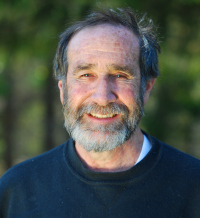 .
.
Joel Glickman taught music including jazz history and the jazz band at Northland College, Ashland Wisconsin, from 1974 until retirement in 2017, where he has resumed teaching about jazz again, part time. He has written and published poetry over a wide range of subjects. Primarily a classical clarinetist and folk singer-song writer and banjo player, his jazz and saxophone skills lag behind these. He resides in Ashland with wife Susan and their Bichon, Madeline.
He can be reached via email at [email protected]
.
.
___
.
.

Wayne L. Miller is a poet from Northern New Jersey. His work has been (or will be) published in Pank, Arc Poetry Magazine, The Paterson Literary Review, LIPS, Statorec, Edison Literary Review, Exit 13, Narrative Northeast, Turtle Island Quarterly, and various other journals and anthologies. Sometimes what he writes is not poetry and never can be.
Visit his website: https://waynelmiller.info/
.
.
___
.
.
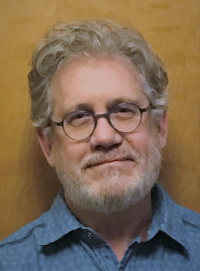
D.R. James’s latest of nine collections are Flip Requiem (Dos Madres, 2020), Surreal Expulsion (Poetry Box, 2019), and If god were gentle (Dos Madres, 2017), and his micro-chapbook All Her Jazz is free, fun, and printable-for-folding at Origami Poems Project. He lives in the woods near Saugatuck, Michigan.
Visit his Amazon author page by clicking here
.
.
___
.
.

Retired from professing English and American literature, Ralph La Rosa has published work on American writers, written for film, and now devotes himself to poetry, having published widely on the Internet, in print journals, in the chapbook Sonnet Stanzas, and in a full-length collection, Ghost Trees. My Miscellaneous Muse: Poem Pastiches & Whimsical Words was published in 2020.
.
.
___
.
.
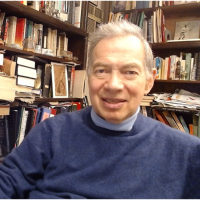
Peter Gregg Slater has been a jazz buff since his teenage years, with a special passion for hard bop, particularly Brown & Roach. He is a professor emeritus of history whose scholarship in American intellectual and cultural history is often referenced in both academic and popular publications. His poetry, fiction, parody, and essays have appeared in Dash, Workers Write!, The Westchester Review, The Satirist, and Twentieth Century Literature, among other publications. Contact: [email protected].
.
.
___
.
.
Photo by Ruth Ella Hendricks
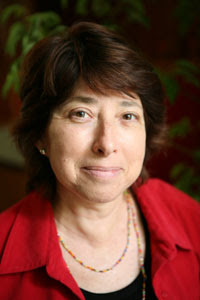
Joan E. Bauer is the author of The Almost Sound of Drowning (Main Street Rag, 2008) and The Camera Artist (Turning Point, 2021). For some years, she was a teacher and counselor and she now lives mostly in Pittsburgh where she co-hosts and curates the Hemingway’s Summer Poetry Series with Kristofer Collins. She can be on found on Twitter @Joan_E_Bauer and her email is [email protected].
.
.
___
.
.

T..S. Davis is the author of Sun + Moon Rendezvous, a book of poems, and the former producer of the Seattle Poetry Slam. He’s published poems, essays, and nonfiction in a variety of magazines including Rattle, The Lyric, Bellingham Review, 14 X 14, Blue Collar Review, Amethyst Review, Henhouse, and Your Genealogy Today, among others. Mr. Davis is a retired Registered Nurse who lives in rural Arizona and writes creative nonfiction and Shakespearean.sonnets.
.
.
.
_____
.
.
Click here to read the Summer, 2020 collection.
Click here to read the Spring, 2020 collection
Click here to read the Winter, 2020 collection
Click here to read the Fall, 2019 collection
Click here to read how to submit your poetry
Click here for details concerning our 56th Short Fiction Contest
.
.
.
.


































This is a remarkable collection of poems that includes a wide range of voices and visions. An in-depth response to all the work contained within this collection is beyond my scope. Instead I have selected individual passages from certain writers to quote; passages I found particularly moving or striking or insightful. Many poems (not quoted from) would require a reader to quote the whole poem. The passages below are a mere sampling of a great deal of fine poetry.
Also, Christel Roelandt’s artwork is remarkable, and adds greatly to the collection as a whole.
Lines that grabbed my attention and made me think:
Roger Singer: “Long Past Midnight”:
it finds its
sharp path
to my soul
feeding,
lifting, carrying
my thoughts
long past
the midnight
of my day
Michael Keshigian: “A Varied Timbre”:
This Fall, an instrumental entanglement
will no longer rouse the streets,
for when the autumn doors open,
the air will be filled with emptiness,
only computers and electronics
will dictate remotely
to the latest breed of musicians
who will practice
within a new design, amid their homes,
their ensembles relegated to tiny blocks
upon the screen, where the brilliance of sound
reverberates in a single room.
Frank Wilkes: “Playlist Birds”:
while Thelonious Monk’s Brilliant Corners
without fanfare
ends and blends
into Chet Baker’s angelic trumpet
accompanied by Paul Bley’s piano lines
announcing a softening of the world
Patricia Carragon: “Early Autumn”:
I hear Ella Fitzgerald sing Early Autumn
walk a few more blocks before rain’s return
& think of things best kept in the attic
like why my thoughts wear Code Orange
& why you can’t touch me hear me or even see me
.
Erren Kelly: “Listening to Freddie Hubbard under Quarantine”:
Stars fall like dreams in the fall night
How your face moves me, like a dream of angels
As I hold you, as the trumpet plays, you are my prize
Never to be taken for granted; you are my night flower
Never lovelier, as the song of the trumpet, gives you its shape
Once you were a ghost, living inside a horn, silent, a prayer
Now I hear you, burning bright, my ivory flame
Russell Dupont: “Stitt:”
Norman’s Blues —
I know that you know
if I had you —
alone, together —
my down home blues
would turn to stars,
falling on Alabama.
Freddington: “The Migrant”:
A breath of melancholy enters the microphone,
tumbling out into the nightclub air,
twisting through the smoke,
never quite finding the peace it seems to seek.
It speaks of difficult times,
of pride and regret,
of survival and unrewarded lack,
of chasing a dream of acceptance and fame,
and a prosperity that may never appear.
It’s a tale woven with tact and precision,
and all the aggression there was left to give.
John Stupp:”Poem for Gary Smulyan”:
I can only think of your solo on
The Bad and the Beautiful
first
the gut wrenching lyric
a sad book had it been a novel
then
the sound of your deep breathing
as unmistakable hope
an anchor
not a butterfly
until I
behind my shield
believe in heaven again
Phyllis Wax: “Twisted”:
Ma Petit Bijou,
Gimme that Wine,
cause Everybody’s
Boppin’.
With that trio, three
heads were way
better than one.
Terrance Underwood: “Ben Webster’s Horn”:
knew no greater love
aired out Londonderry
lolly-gagged with Hodges
waited for champagne
blew fuses
described a single petal of a rose
& still continues watching over someones
……………………………………such as We
for generations yet to be realized
Arlene Corwin: “Making Something out of Nothing”:
The chords, the tune become pure jazz.
And as it goes along
What seeded as a minus
Soon becomes a plus.
A pure example and a sample
Of the art of making something out of nothing.
This applies to everything.
Antoinette Winstead: “Midnight Composer”:
And not until every staff of every measure
is anchored with notes and rests,
demarcated with clefs, key signatures, and bars
can he hope to break free of this composer’s purgatory.
David Dephy: “The Lips of Jazz”:
When I kissed her I felt the song on her lips and there was nothing
in the world that we ever wanted more than to feel freedom in our
hearts, than to see light in our hearts, than to smell love in our breath,
Prince McNally: “The Happy Murmurs of Busy Bumble Bees Buzzing”:
The way her fondling fingertips
tickles the ivories of my spinal cord
places me in a spiraling spin that sends
the oxygen rushing through my brain so fast,
I’m flying high on electric blue vibes.
Patricia Carragon: “I Put a Spell on You”:
red & gold leaves crushed under my boots
….on my iPhone Nina Simone sang I Put a Spell on You
……..November’s fierce wind persisted
…………emotions became icicle tears under lock & key
…………….invoked the approaching December storm
………………..to cover a graveyard of dried leaves
Tam Francis: ” Midnight Dance”:
it’s just you and him
no one else exists in the world
the possibilities open
the bowl is empty, ready to be filled
your entire life ahead of you
the sun is not setting, it’s a golden dance on the horizon
Dan Franch: “Ballad of That Thing Called Time”:
s-s-h-h-h his music seems to say
the children are now sleeping
the chair no longer sways,
the clock has stopped its ticking
time for broom and brush to be put away.
Carrie Magness Radna: “Virginia”:
The branches above
cut out pictures of the light;
the grass was damp & sharp
like tiny steel blades
But the earth
smelled like heaven
as she waited
for the apples to drop down.
Aurora M. Lewis: “Love Me Some Miles”:
Miles, my melodic lover, a tattooed
Valentine, each note a salutation:
proclaiming, you’ll always be mine
Special deliveries of gifts abound
No one can replicate his sound
My teenage crush, now a life
long, loving devotion to Miles
John Stupp: “Bumpin’ on Sunset”:
oh trout
oh flounder
oh red drum
forgive me
your beauty is overflowing
I have made a reservation
we will meet again in the afterlife
we will listen to Wes and Ron Carter
and I will betray thee with lemon
What a good collection! John Hawkins — a nice sonnet; Auro Fraser — I learned what gossips the instruments are; Michael Newell tribute to Mingus and all the other tributes to love and nostalgia.
Overwhelmed with the beauty and the power of another great collection of poetry. Stealing and altering something said by Robert Graves. –“To be a poet [or a Jazz musician] is a condition, not a profession.”